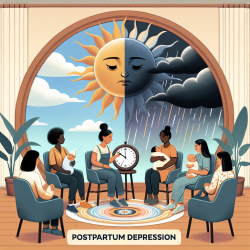Introduction
In the realm of pediatric health, obesity and overweight conditions in adolescents have become significant public health concerns. The study titled A pro-inflammatory diet increases the likelihood of obesity and overweight in adolescent boys: a case–control study provides compelling evidence on the role of diet-induced inflammation in these conditions. As practitioners dedicated to improving child health outcomes, it is crucial to understand and implement the findings of such research to guide interventions and promote healthier lifestyles among children.
Understanding the Research
The study conducted by Vahid et al. (2020) examined the relationship between dietary inflammatory index (DII®) scores and obesity in adolescent boys. The research involved 535 participants, with 214 classified as overweight or obese and 321 as normal weight. The findings revealed a positive association between higher DII® scores and increased odds of obesity, emphasizing the role of pro-inflammatory diets in adolescent weight gain.
Key Findings
- Adolescents with a DII® score greater than 0.02 had 1.5 times higher odds of being overweight or obese compared to those with lower scores.
- The study highlighted the importance of consuming diets low in inflammatory potential, rich in fruits, vegetables, fiber, and essential nutrients like zinc, magnesium, and selenium.
- Avoidance of saturated fatty acids, trans-fatty acids, and cholesterol is recommended to support a healthy weight.
Implications for Practice
As speech-language pathologists and practitioners working with children, integrating nutritional guidance into therapy sessions can be beneficial. Encouraging parents and schools to adopt anti-inflammatory dietary practices can play a pivotal role in managing and preventing obesity in adolescents. Here are some actionable steps:
- Collaborate with nutritionists to develop educational materials for parents and schools on anti-inflammatory diets.
- Incorporate discussions about healthy eating habits into therapy sessions, emphasizing the importance of a balanced diet.
- Advocate for school programs that provide healthier meal options and educate students about the impact of diet on health.
Encouraging Further Research
While the study provides significant insights, further research is needed to explore the impact of pro-inflammatory diets on other demographics, including female adolescents. Practitioners are encouraged to participate in or support studies that expand on these findings to develop comprehensive strategies for combating adolescent obesity.
Conclusion
The evidence presented by Vahid et al. underscores the critical role of diet in managing adolescent obesity. By promoting anti-inflammatory dietary habits, practitioners can contribute to healthier outcomes for children. For a deeper understanding of the research, you can access the original study here: A pro-inflammatory diet increases the likelihood of obesity and overweight in adolescent boys: a case–control study.










